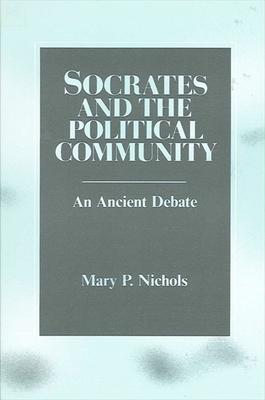
Book
Socrates and the Political Community: An Ancient Debate
(Write a Review)
Paperback
$36.89
Mary Nichols first discusses the relation between Aristophanes and Plato, showing that the city as Socrates' place of activity in the Republic resembles the philosophic thinktank mocked in Aristophanes' Clouds. By representing the extremes of the Republic's city, Plato shows that the dangers attributed by Aristophanes to the city are actually inherent in political life itself. They were to be moderated by Socratic political philosophy rather than Aristophanean comedy.
Nichols concludes by showing how Aristotle addressed the question at issue between Plato and Aristophanes when he founded his political science. Judging Plato's and Aristophanes' positions as partial, Nichols argues that Aristotle based his political science on the necessity to philosophy of political involvement and the necessity to politics of philosophical thought.
Mary Nichols first discusses the relation between Aristophanes and Plato, showing that the city as Socrates' place of activity in the Republic resembles the philosophic thinktank mocked in Aristophanes' Clouds. By representing the extremes of the Republic's city, Plato shows that the dangers attributed by Aristophanes to the city are actually inherent in political life itself. They were to be moderated by Socratic political philosophy rather than Aristophanean comedy.
Nichols concludes by showing how Aristotle addressed the question at issue between Plato and Aristophanes when he founded his political science. Judging Plato's and Aristophanes' positions as partial, Nichols argues that Aristotle based his political science on the necessity to philosophy of political involvement and the necessity to politics of philosophical thought.
Paperback
$36.89